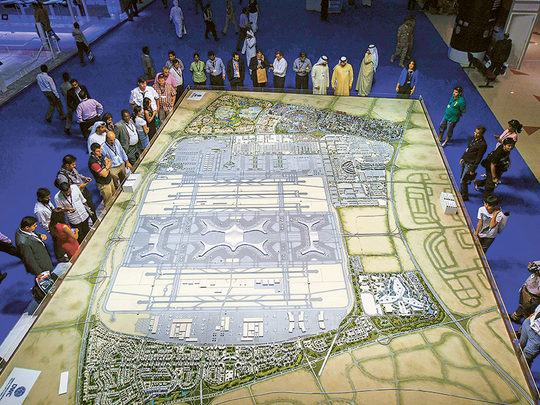
Dubai: For developers or investors planning a hospital or a clinic but don’t know where to start, help may be at hand ... literally. A new joint venture between Australia’s Tahpi and KEF Holdings is offering off-the-shelf modular designs to fit in with the plans of health-care project promoters. All they need to provide is the land.
“Health-care facilities currently take too long to plan, design and build, [and] are too expensive,” said Aladin Niazmand, Director of Tahpi. “Their quality is often hit-and-miss at best. At this rate, equitable health care will not be sustainable in the long run.”
With the modular designs the joint venture offers, “the hospital and clinic components can be designed in a studio, then manufactured on a large scale in a facility dedicated to modular construction,” said Niazmand.
“Although clients would not uniquely own the design and simply receive the ‘product’ — as in the case of cars — our design and engineering come at no cost due to the variations and design preferences given from a design catalogue. These ‘catalogue’ hospitals will come with a range of options such as finishes, cladding types and branding elements. Effectively, clients will be exercising their own creativity by choice in a showroom environment.”
The catalogue feature six prototypes, which can be developed into health-care facilities ranging between 18 beds to 500.
Once the basic design is decided by the client, the construction side will be taken up at a $350 million (Dh1.2 billion) facility in the South Indian state of Tamil Nadu. A second manufacturing unit being set up in Jebel Ali at a cost of $100 million will act as a complementary facility. It will be commissioned in the third quarter of this year.
The prefabricated components extends to the concrete structure, whole room pods, wall packs and staircases. The extent of design standardisation even extends to the operation theatre and ICU, and the emergency, labour and X-ray rooms.
Apart from education and hospitality, health care specific projects are drawing in significant investor interest in the UAE and other Gulf markets. With all its key cities fast-tracking expansion outwards from the centre and with the accompanying population surges, creating new health care capacity merits a high-on-development agenda.
“Our clients can select the hospital model or just the components they require for their projects from the design catalogue,” said Niazmand. “Thereafter, KEF-Tahpi takes complete responsibility for all the processes to complete the facility and hand over as a fully functioning ‘product’ — soft modular design, create[ing] component blueprints and specifications that are replicable in compliance with relevant international codes and guidelines.”
The promoters emphasise that the project costs can be whittled down by up to 50 per cent through ‘automation and economies of scale’. “The partnership is an alternative to slow, expensive do-it-yourself hospital design and construction,” Niazmand said.












